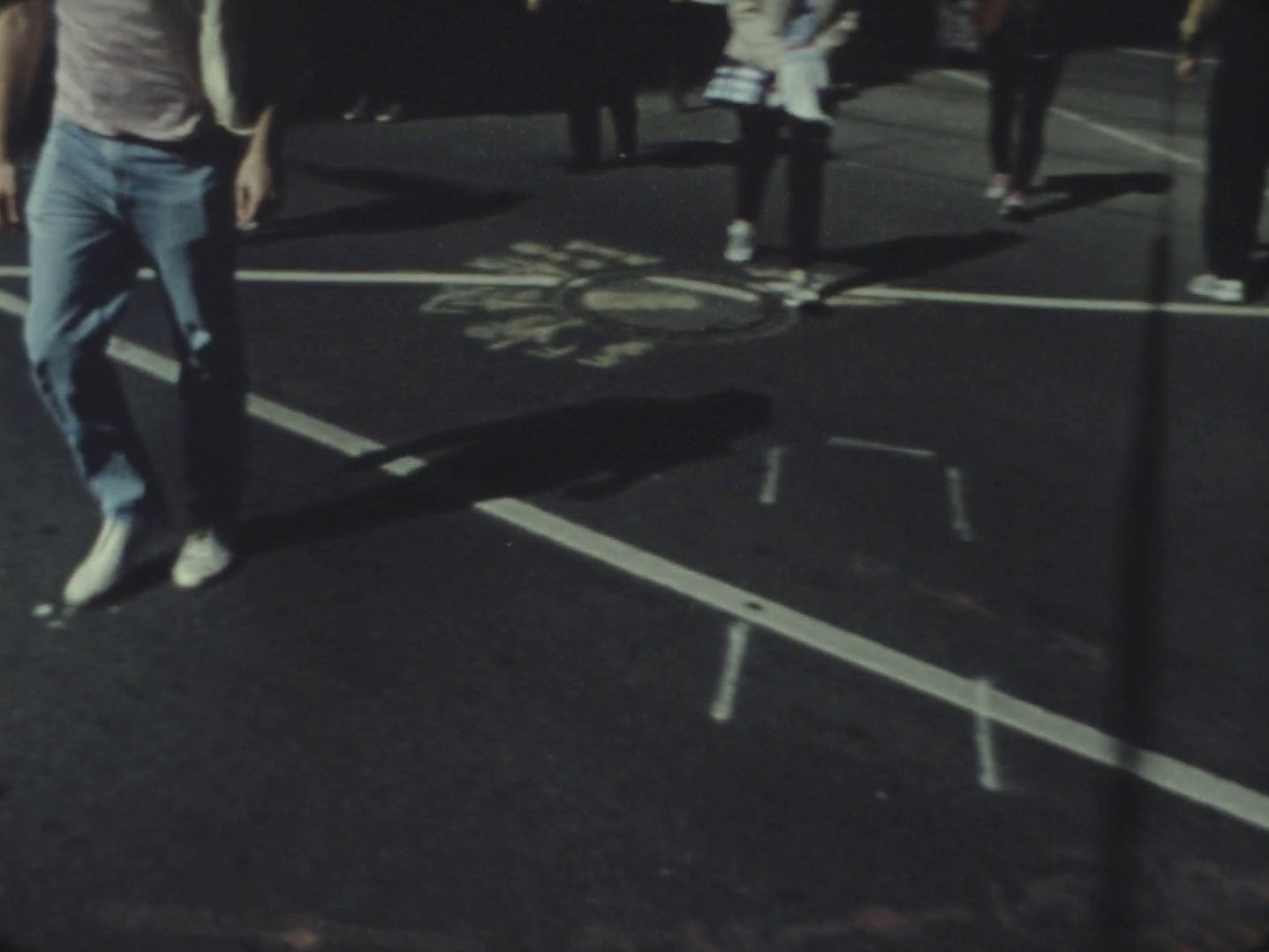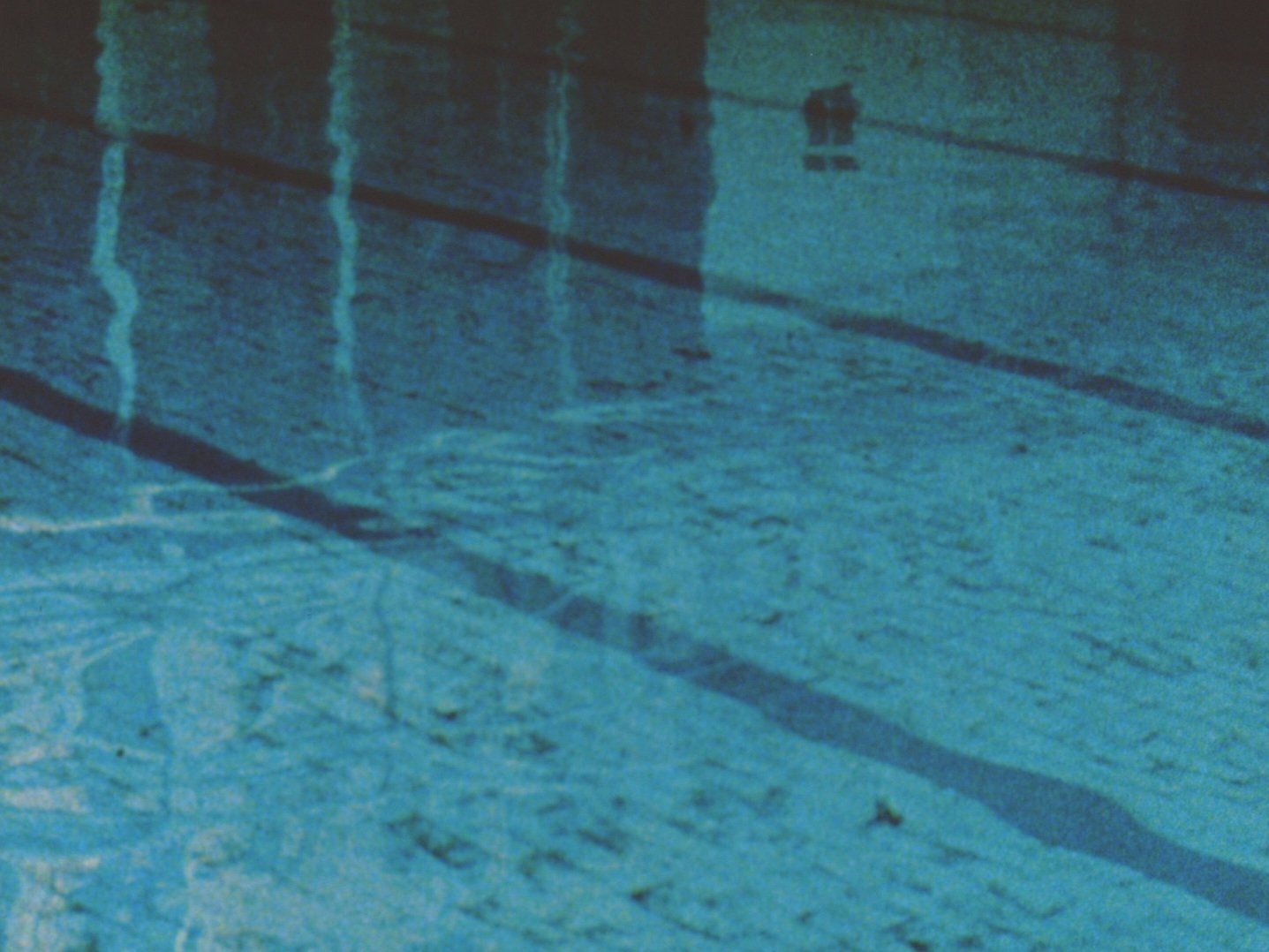Program 3
curated by Patricia Ledesma Villon
Friday, March 31, 2023 @ 7pm
The Lab (2948 16th Street, SF, CA)
Total running time: 55 minutes
$6 - 10 sliding scale - tickets available at the door
Festival passes available for purchase here
Reflect
Tsen-Chu Bamboo Hsu
2010 | 3 minutes | Taiwan/USA | 16mm | color | silent
This film is about the changes in time, light and reflection that I have observed in the place where I live. The intimacy comes not only from this personal space and the subtle things that happen in it, but also from my direct involvement making this piece in every aspect – shooting, hand-processing and editing. In the latter process, I seek to break down the original rhythms of individual shots and look for visual resonances among them – patterns, shapes, color tones – in order to discover and exploit hidden implications weaving into a fresh visual fabric. This is a hand-processed film.
-TBH
Intersection
Richard Tuohy
2022 | 10 minutes | Australia | 16mm | color | sound
A staccato study of street level action and inter-action. People and vehicles on everyday journeys are atomised into coursing fragments of light, shadow, angle and inertia, reiterating and disassembling the creation of motion out of still frames at the heart of cinema. Filmed in ten cities on four continents.
-RT
Trapline
Ellie Epp
1976 | 18 minutes | Canada | 16mm | color | sound
Oblique description of a space, texture and gesture in light and sound, interaction of the two modes, a play of expectations, a row of traps laid end to end catching very small events.
-EE
Six Windows
Marjorie Keller
1979 | 7 minutes | USA | 16mm | color | silent
A pan and a dissolve make a window of a wall on film. A portrait of the filmmaker in a luminous space, synthetically rendered via positive and negative overlays.
-MK
Plotting the Greyscale: 2 or 3 Quick Traverses
Fred Worden
1985 | 7 minutes | USA | 16mm | b&w | silent
"A monochromatic field study of sorts, along perpendicular axes. Varying shades of grey flicker in increasing intensity, giving way to a kinetic study of activated organic forms deriving from rapidly changing optically printed freeze frames of trees. A variation on the grey flicker recurs, climaxing in a modestly manipulated study of leaves moving in the wind. Overall, this unusual and visually affecting film brings together some of Worden's most elemental interests, including stasis, motion, rhythm, visual consonance and dissonance, and the tension between the pictorial and the abstract, all with a characteristic phenomenological undercurrent."
-Mark Toscano
Analogies: Studies in the Movement of Time
Peter Rose
1977 | 14 minutes | USA | 16mm | color | sound
The film uses a variety of multiple screen formats to create an intriguing series of visual riddles. Simple camera movements are rendered “diachronically” - several different aspects of the action are presented on the screen at once. By playing with time delays between these images, new kinds of space, action, gesture, and temporality have been found. Generated from structural principles, the film is both lyrical and sensual and provokes a new understanding of time and cinema.
-PR
HSU Tsen-chu is an experimental filmmaker from Taiwan. She is devoted to exploring the intersection of hand crafting and filmmaking. She also works as a film educator focusing on film arts and film preservation.
Richard Tuohy began making works on Super 8 in the late 1980s. After a brief hiatus from cinema (including formal study in philosophy for seven years), he returned to filmmaking in 2004. In 2006 he, along with his partner Dianna Barrie, launched nanolab, a Super 8 film processing laboratory based at their home in Daylesford, Victoria in Australia. Since 2009 he has been an active and vocal member of the international artist run film lab scene. His films and film based performances have screened at venues including the Melbourne IFF, EMAF (Osnabruck), Rotterdam IFF, New York FF, Ann Arbor, Recontres Internationales (Louvre) and Media City
Ellie Epp is a Peace River Country native: born in Sexsmith and raised on a farm outside La Glace. She studied psychology, philosophy and English at Queen's University, and film at the Slade School of University College London. Her films have become classics of Canadian experimental cinema. She has also worked in video, photography, experimental writing, garden design, digital graphics, and the web. The emergence of cognitive science in the late 1980s took her back to school, and she has a recent PhD in the philosophy of neuroscience. Her web book, Being about: perceiving, imagining, representing, thinking was written to work out a body-based philosophical platform for her own and others' work in art. She teaches embodiment studies at a small progressive college in the US and is experimenting with high definition digital video.
In the late 1970s Epp returned to her home territory with a Canada Council grant for a project about place. She lived in an old farmhouse near Valhalla Centre for parts of several years. The art she made during that time has taken images of the Peace River Country to many parts of the world. A two-hour show of slides and writing called Notes in Origin has been performed in Melbourne, Toronto, San Francisco, Montreal, and at Canada House in London. A film also called Notes in Origin was screened as part of the celebrations for the opening of the new National Gallery of Art in Ottawa. It has toured in Japan and France and is studied in film courses in art colleges across Canada.
Marjorie Keller was an influential filmmaker, author, activist, and scholar. After being expelled from Tufts for participating in a protest, Keller finished her coursework at Art Institute of Chicago, and received her Master’s and Doctorate in Cinema Studies at NYU. Keller was a professor of filmmaking and film history at the University of Rhode Island, Sarah Lawrence, and Massachusetts College of the Arts. She produced a substantial body of writings, as well as notes towards a proposed study of women’s experimental cinema that would have charted a trajectory from pioneers like Germaine Dulac, Maya Deren, and Carolee Schneemann through to a younger generation represented by Peggy Ahwesh, Su Friedrich, and Leslie Thornton, among others.
In addition to her achievements as an artist and critic, Keller played a crucial role in the Collective for Living Cinema, serving on its board of directors and editing the Collective’s publications Idiolects and Motion Picture. She engaged in the evolving debates around feminism, film, and the avant-garde that ran from the 70s through the 90s, vigorously defending a tradition of highly personal, formally rigorous work that some had rejected as irredeemably masculinist, while at the same time subjecting that tradition to a nuanced critique through her own scholarship and filmmaking. She transformed her subject matter—a birth, a wedding—from the stuff of home movies to an adventure in perception. Yet she forgoes the self-mythologizing of her predecessor, offering a more earthbound, though no less poetic, take on the subjective nature of memory. Her films are both at once lyrical and anti-romantic, rendering their subjects through radically nonlinear editing and complex experiments in sound-image correspondence. Though highly skeptical of the ways in which feminist film studies had, ironically, come to ignore some of the considerable accomplishments by women in the American avant-garde, Keller was nevertheless one of the key figures of her era to synthesize theory and practice at the most advanced level.
Fred Worden has been making experimental film since the mid 1970's. His films have been shown in the 2002 Whitney Biennial, The Museum of Modern Art, The Centre Pompidou, The Pacific Film Archive, The New York Film Festival, The London Film Festival, The Rotterdam International Film Festival, The Toronto Film Festival, The Hong Kong International Film Festival and numerous other experimental film venues.
Worden's films develop out of his interest in intermittent projection as the source of cinema's primordial powers. How a stream of still pictures passing through a projector at a speed meant to overwhelm the eyes might be harnessed to purposes other than representation or naturalism. Worden is a faculty member in the Department of Visual Arts at the University of Maryland, Baltimore County.
Since 1968 Peter Rose has made over forty films, tapes, performances and installations. Many of the early works raise intriguing questions about the nature of time, space, light, and perception and draw upon Rose’s background in mathematics and on the influence of Structuralist filmmakers. He subsequently became interested in language as a subject and in video as a medium and generated a substantial body of work that played with the feel and form of sense, concrete texts, political satire, oddball performance, and a kind of intellectual comedy. Recent video installations have involved a return to an examination of Landscape, Time and Vision. Rose has been widely exhibited, both nationally and internationally, having been included in shows at the Museum of Modern Art, the Whitney Biennial, the Centre Pompidou, the Philadelphia Museum of Art, the Film Society at Lincoln Center, and the Rotterdam International Film Festival. He has been awarded fellowships by the National Endowment for the Arts, the Guggenheim Foundation, the Pew Foundation, the Independence Foundation, and the Pennsylvania Council on the Arts, and is fond of writing descriptions in the third person.






